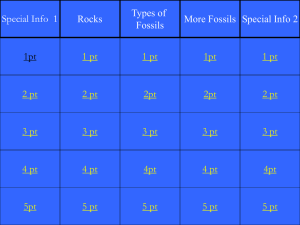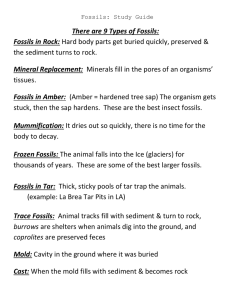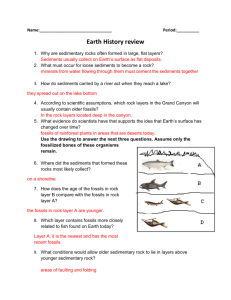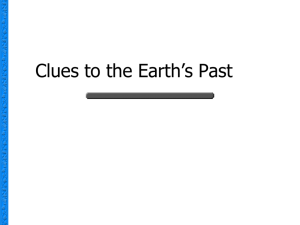Name Fossils study sheet Fossil- remains, imprints or traces of once
advertisement
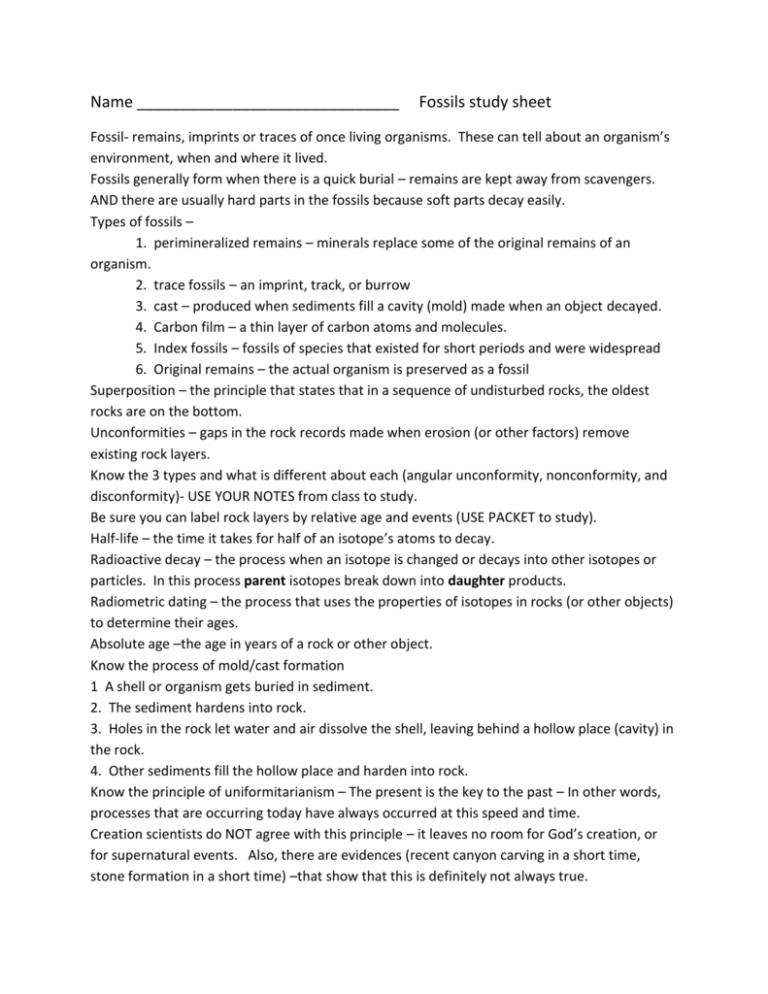
Name ______________________________ Fossils study sheet Fossil- remains, imprints or traces of once living organisms. These can tell about an organism’s environment, when and where it lived. Fossils generally form when there is a quick burial – remains are kept away from scavengers. AND there are usually hard parts in the fossils because soft parts decay easily. Types of fossils – 1. perimineralized remains – minerals replace some of the original remains of an organism. 2. trace fossils – an imprint, track, or burrow 3. cast – produced when sediments fill a cavity (mold) made when an object decayed. 4. Carbon film – a thin layer of carbon atoms and molecules. 5. Index fossils – fossils of species that existed for short periods and were widespread 6. Original remains – the actual organism is preserved as a fossil Superposition – the principle that states that in a sequence of undisturbed rocks, the oldest rocks are on the bottom. Unconformities – gaps in the rock records made when erosion (or other factors) remove existing rock layers. Know the 3 types and what is different about each (angular unconformity, nonconformity, and disconformity)- USE YOUR NOTES from class to study. Be sure you can label rock layers by relative age and events (USE PACKET to study). Half-life – the time it takes for half of an isotope’s atoms to decay. Radioactive decay – the process when an isotope is changed or decays into other isotopes or particles. In this process parent isotopes break down into daughter products. Radiometric dating – the process that uses the properties of isotopes in rocks (or other objects) to determine their ages. Absolute age –the age in years of a rock or other object. Know the process of mold/cast formation 1 A shell or organism gets buried in sediment. 2. The sediment hardens into rock. 3. Holes in the rock let water and air dissolve the shell, leaving behind a hollow place (cavity) in the rock. 4. Other sediments fill the hollow place and harden into rock. Know the principle of uniformitarianism – The present is the key to the past – In other words, processes that are occurring today have always occurred at this speed and time. Creation scientists do NOT agree with this principle – it leaves no room for God’s creation, or for supernatural events. Also, there are evidences (recent canyon carving in a short time, stone formation in a short time) –that show that this is definitely not always true.
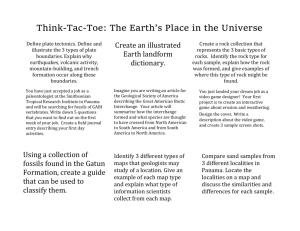
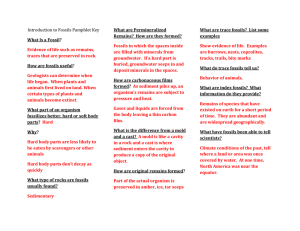

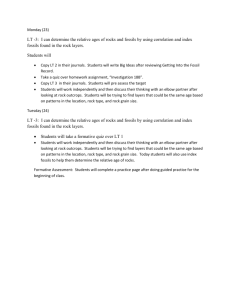
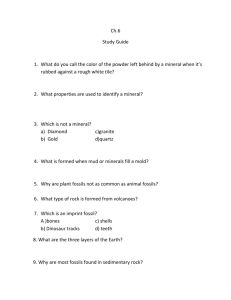
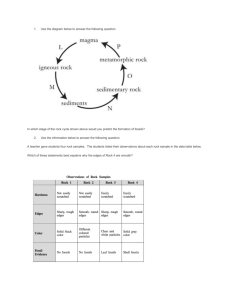
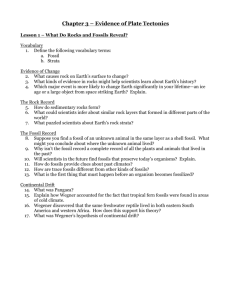
![F3-4 Study Guide for QUIZ [1/28/2016]](http://s3.studylib.net/store/data/006814899_1-56a576b1a51c0f876f28a8da0f15de89-300x300.png)
